These easy quick breads are fantastic for breakfast, brunch, or an afternoon pick-me-up with a cup of tea! Since they freeze so well you can have them anytime.
Table of Contents
🗝️ Key takeaways
- Heat up frozen scones in minutes with hardly any effort.
- Enjoy scones at breakfast, as a snack for unexpected guests, with afternoon tea, or as a quick dinner side dish!
- Learn simple steps to store both leftover scones and unbaked scones.
There's nothing as satisfying as warm scones, and these tips will help you master the freezing process so they taste straight-out-of-the-oven-good!
With these pointers, you can make your favorite scone recipe last longer, save yourself time and effort, and enjoy fresh scones whenever you want.
How to freeze unbaked scones
Surprisingly, the best way to freeze scones is before baking them. This method works great to preserve the scone dough so you can pull it out at a later time and simply bake—no prep needed.
Uncooked scones are made with simple ingredients that don't experience any major changes during freezing. Plus, butter needs to be cold for a flaky texture. Both of these reasons make scone dough a great candidate for long-term freezer storage.
Shaped and cut into scone-sized pieces, the frozen dough will last about three months. Some people like to freeze the whole disk of dough, which is fine, too.
However, I prefer portioning the dough into little, single-serving cake shapes so I can pull out only as many as I want to make for an afternoon snack!
To do this cut the scones as usual then flash freeze on cookie sheets. Once they're frozen just put them in a zip-top freezer bag and use as desired.
This is also a great idea if you don't have a big family or a large appetite.
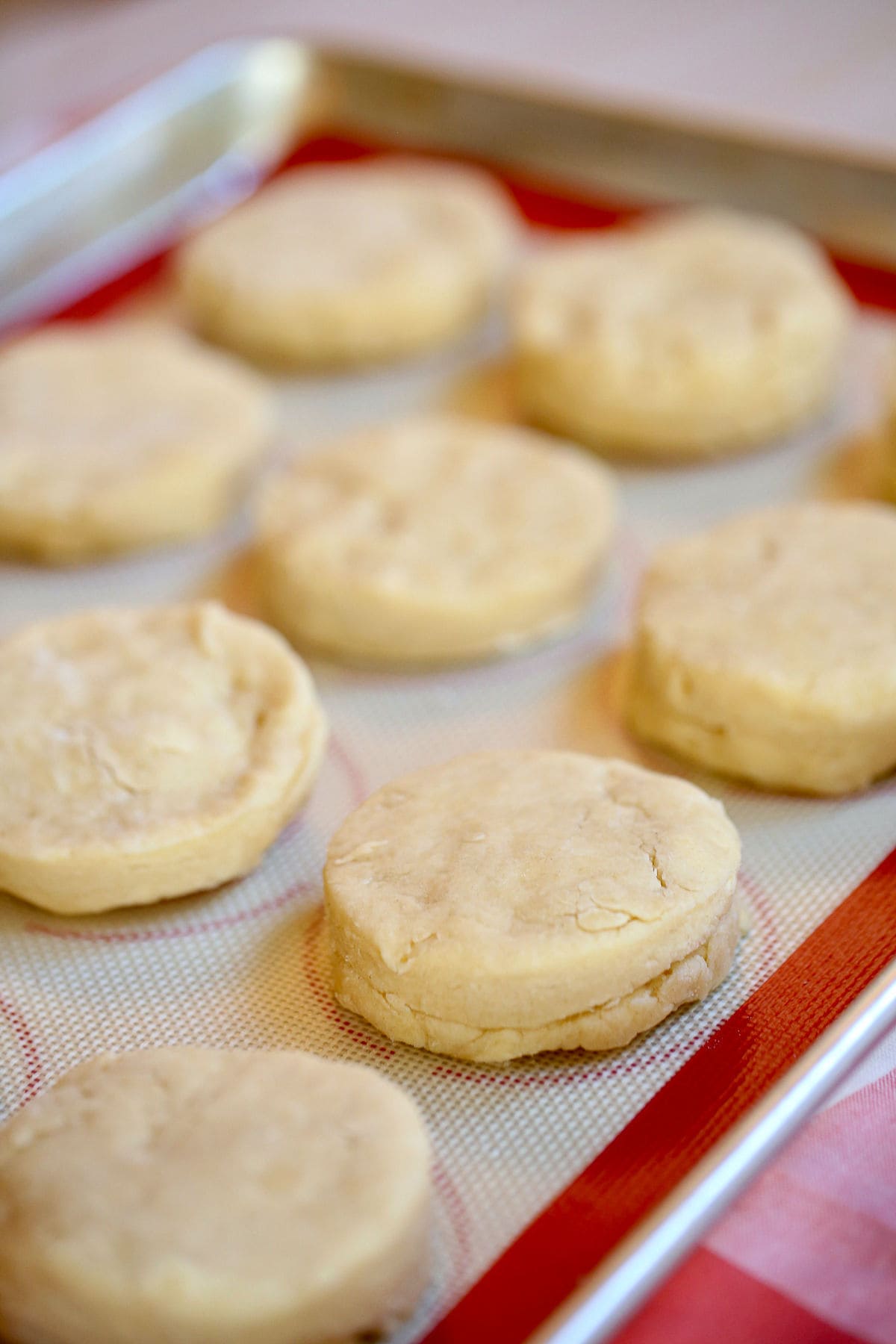
Freezing baked scones
The second method for freezing scones is after baking. This is a great way to store leftover homemade scones and keep them tasting fresh.
Without all the preservatives of store-bought baked goods, from-scratch scones don't stay fresh as long at room temperature.
Plus, storing them in the fridge makes them dry out more quickly.
Freezing scones is like freezing them in time—it transforms a short shelf life into a snack you can enjoy weeks later. Wrapped tightly, baked scones will keep in the fridge for up to three months.
How to wrap scones for freezing
For best results, keep scones in a heavy, airtight container. Many people like to use sturdy Tupperware lined with a sheet of parchment paper.
If you don't have the freezer space for a container, feel free to wrap the scones in cling film. However, to prevent freezer burn, place the wrapped scones into a plastic bag or wrap them again in aluminum foil.
It can be difficult to wrap up raw dough, so I like to "flash-freeze" the uncooked scones on their baking sheet until they're easier to handle.
Then, you can simply place them into freezer bags or a storage container. Remember to use parchment paper to keep each scone separate.
How to bake frozen scone dough
The good thing about frozen unbaked dough is that you can cook it without thawing! Place as many frozen, unbaked scones as you want onto a lightly greased cookie sheet.
Then, bake scones as directed in your recipe. You'll just need to add a couple of minutes to the baking time. If you don't remember how long to bake for, no worries.
Most scones take about 10-20 minutes at 400 degrees F, depending on the size. Larger or taller scones will take a little bit longer, of course.
How to reheat baked scones
Reheating frozen, baked scones doesn't take much time at all. However, you do have to let the scones thaw at room temperature first.
I like to place the frozen scones on a baking tray. Then, after about an hour, they are almost ready to enjoy!
Place the thawed scones in a 350-degree F oven for about five minutes. This simple process doesn't take much extra effort and makes your frozen scones taste like they're fresh from a fancy bakery!
Things to know
Expert Tip: Let baked scones cool before wrapping them. Excess heat turns into moisture which will affect the scones' texture after freezing.
- If your recipe calls for an egg wash, and you plan to freeze the unbaked dough, freeze without the wash. Then, add it just before baking.
- Be sure to label and date the package before putting it into the freezer.
- Freezing more than a single layer of scones? Lay a piece of parchment between each so that your big batch doesn't turn into one big scone.
- I don't recommend freezing scones more than once. They tend to dry out after repeated thawing and refreezing.
- You can use these same methods for both savory and sweet scones!
FAQs
For the best, crumbly texture without tasting too dry, I recommend freezing scones uncooked. However, you can freeze leftover cooked scones just fine, and no one will be able to tell a difference!
You can make scone dough up to three months in advance. Once baked, however, I recommend enjoying scones within a day or two.
Foil doesn't provide airtight coverage, so it's best to use plastic or an airtight container. However, you can use foil as a secondary wrap to provide extra protection once the scones are covered with plastic.
Nope! In fact, it's best if you bake frozen scone dough straight from the freezer.
Related recipes
- These Classic Pumpkin Scones taste like all the best parts of fall. The bourbon glaze and maple spice flavors are almost too good to be true.
- Easy, fruity, and perfect for breakfast, Lemon Blueberry Scones strike an ideal balance between sweet and tangy.
- The recipe that started it all: Copycat Starbucks Vanilla Bean Scones are buttery and short, with a vanilla glaze you'll want to eat with a spoon!
The last word
I love scones.
When I can sit down in the afternoon with a scone and a cup of coffee and read a book?
Now that's self-care!
Since they freeze so well there's no reason not to have them on hand for anytime, right? Don't forget the (mock) Devonshire cream.
📓 Meal plans in minutes
Save time in the kitchen with this simple meal planning ap. Get a 14 day free trial!















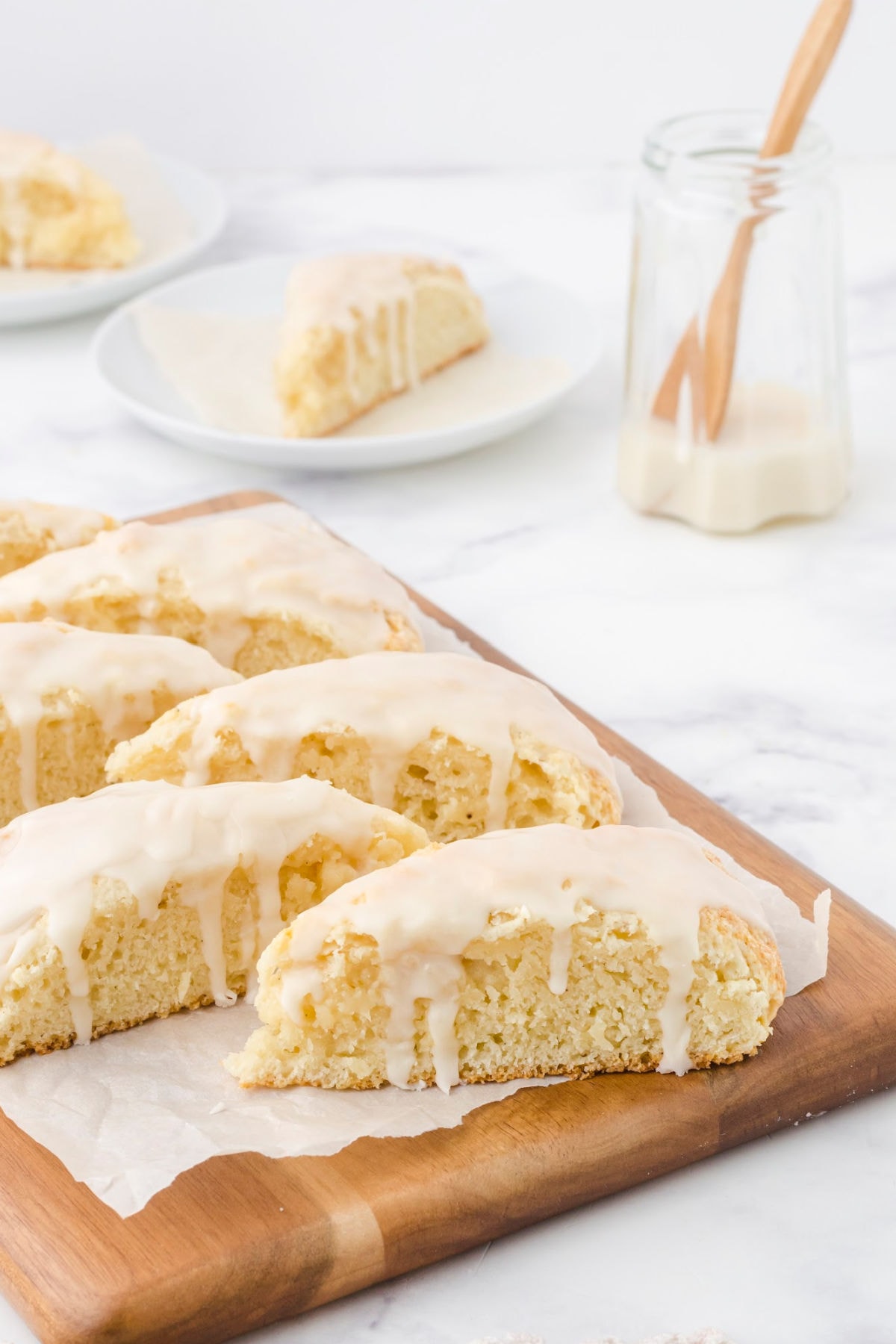
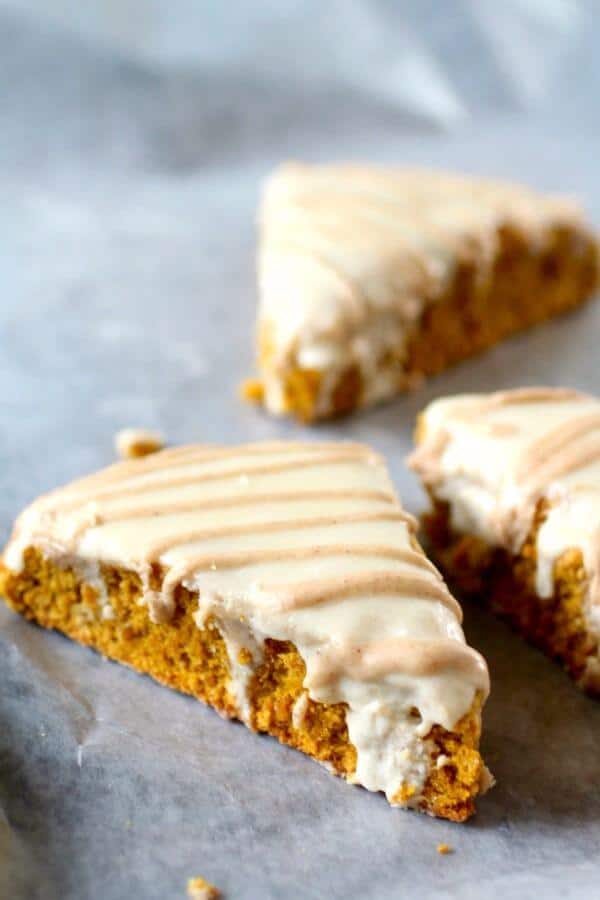

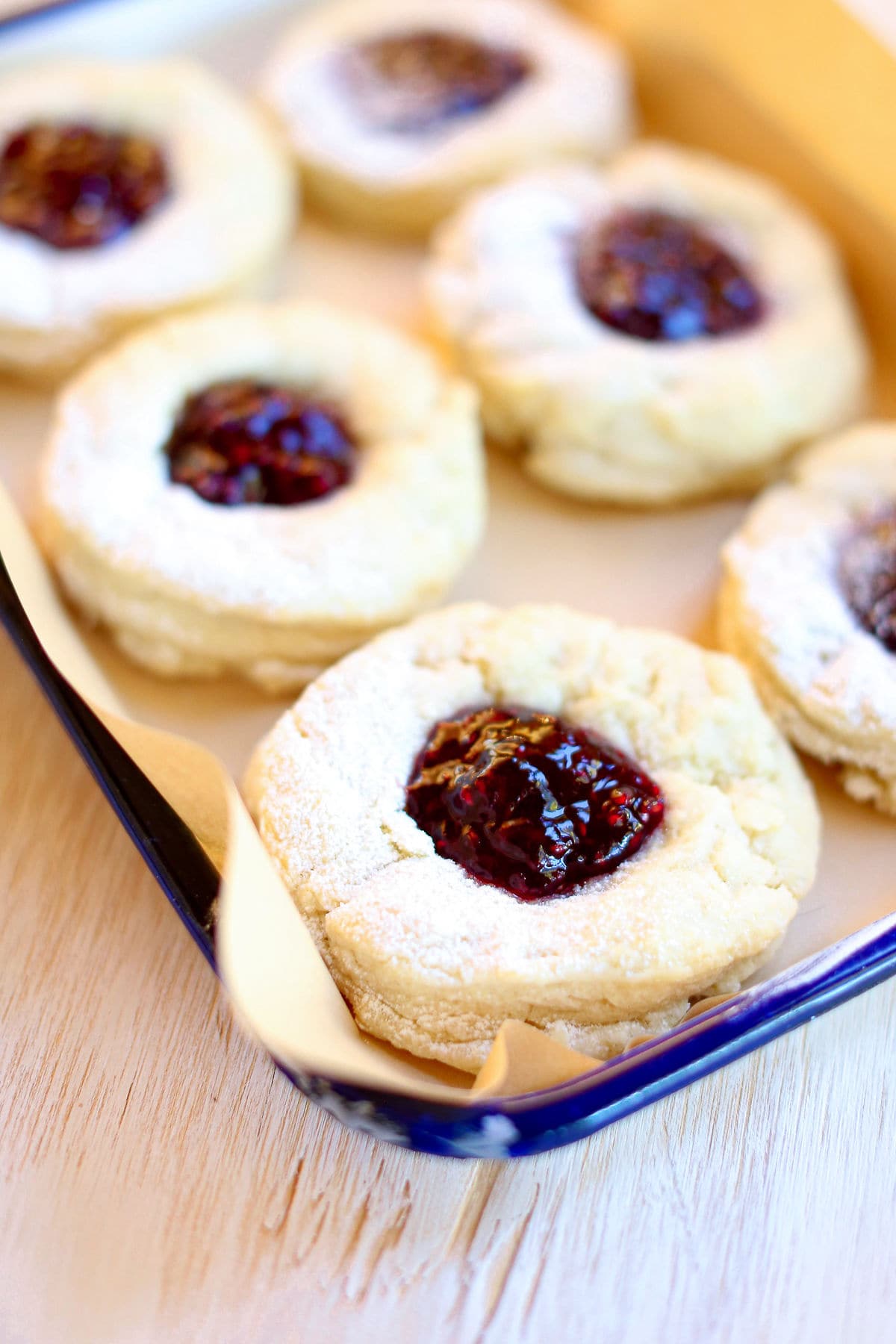


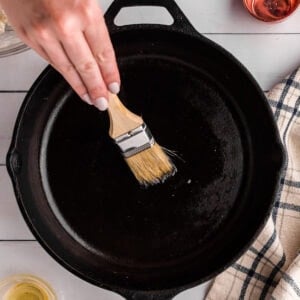
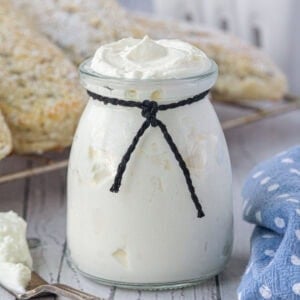
Comments
No Comments